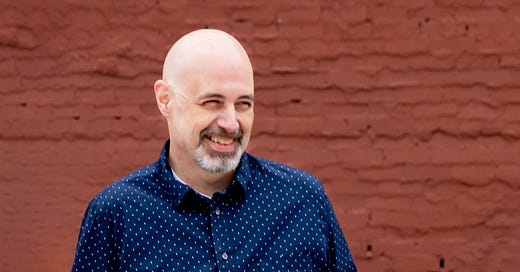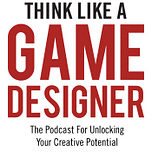About Scott Morris
Scott Morris joins us on today’s episode to share insights into the world of game design and business development. Scott is the Chief Sales and Marketing Officer at Lucky Duck Games, where he has played a key role in the company's growth, including the recent acquisition by Goliath Games. Before his time at Lucky Duck, Scott held leadership positions at GTS Distribution and Passport Game Studios. He's also the designer of Firefly: Shiny Dice, a dice game based on the beloved Firefly universe, published by Upper Deck Entertainment.
In this episode, Scott walks us through his journey, from running the successful review site Crits Happen to transitioning into full-time roles within the board game industry. He shares valuable lessons on branding, including how to effectively pitch a game and the complexities of acquisitions in the gaming world. Scott’s deep dive into the business side of game design, along with his tips for navigating contracts and branding, provides essential advice for designers at all stages of their careers. Enjoy!
Ah-ha! Justin’s Takeaways
The importance of branding beyond a single game: Scott mentions that branding shouldn’t just revolve around a specific game but should focus on building the company's identity. This was a key takeaway in understanding how a strong brand can provide long-term value beyond individual products.
Contracts are crucial, especially when things go right: Scott emphasized the impact of thoroughly understanding contracts, not just for protection when things go wrong but also for when success strikes unexpectedly.
Success is built on relationships and adding value: One of the big takeaways was how Scott's success was deeply rooted in the relationships he built over time. He stressed that contributing value to the community and fostering relationships can lead to opportunities you might not expect, reinforcing the importance of making genuine connections in the industry.
Want to support the podcast and get more design lessons?
Paying subscribers enjoy an abundance of extra game design content and an exclusive newsletter with new lessons, archive access, videos, and more! By opting for a free or paid subscription, you can get the latest articles delivered to your inbox and support this podcast!
Show Notes
"I ended up leaving corporate America with the plan to take a year off and find out what the next road was." (00:04:23)
Scott reflects on his unexpected transition into the board game industry after a conversation about branding led to a surprising job offer. The lesson here is that sometimes opportunities arise when you least expect them and being open to change can lead to new and exciting career paths.
"Agreements are for when things go wrong, not for when things go right." (00:09:20)
While reflecting on the fortunate development of Firefly: Shiny Dice, Scott emphasizes the importance of understanding contracts. He explains that contracts are crucial not only when things are going well but especially when complications arise. The key lesson for game designers is to always review contracts thoroughly and seek legal advice to protect their work and interests.
"You don't fail, you either win or you learn." (00:09:32)
Scott highlights his philosophy of treating setbacks as learning opportunities. The lesson here is that game designers should adopt a growth mindset and view challenges as valuable experiences that can help them improve and succeed in future projects.
"Everything in life is built around relationships, in my opinion." (00:14:48)
Scott emphasizes the value of relationships in the industry, stressing that fostering genuine connections is critical to long-term success. The lesson here is that being a supportive, contributing member of the community will lead to opportunities that arise naturally from those relationships.
"You can't have your branding to the public be the game. You've got to be the company that makes that game." (00:18:10)
Scott explains the importance of building a solid company identity rather than focusing solely on branding a single game. For example, instead of naming the company Ascension, Stone Blade Entertainment created Ascension as one of its games, which allowed the company to branch out into other projects. The lesson is that if you want to expand beyond one successful product, you need to establish your company’s brand to foster long-term growth and flexibility.
"Ten years ago, you could build your audience on crowdfunding. You can't do that now." (00:36:13)
Scott discusses the shift in crowdfunding strategies, noting that creators must now bring their own audience to platforms like Kickstarter or GameFound. The lesson is that designers need to build an engaged community before launching a crowdfunding campaign, as the platform alone won't generate the needed support.
"We knew we were on the right target of making this game for people that haven’t bought the game already or don’t play the game on a regular basis." (00:40:05)
Scott discusses the strategic decision to target a new audience for their game rather than catering to the existing fan base. The lesson here is that it's crucial to understand who your game is truly for and adapt your marketing and design to meet the needs of that audience, especially when you're trying to grow beyond an established community.
"Proving to them— x goes in, and y comes out— that's like one of the most important things." (00:58:04)
Scott describes the importance of financial transparency when preparing your company for acquisition or investment. The lesson is that having detailed, accurate financial records is critical to proving your company’s value, whether you're looking for an acquisition or investment. This reinforces the idea that even with a successful game, potential opportunities can be missed without proper financial management.















Share this post